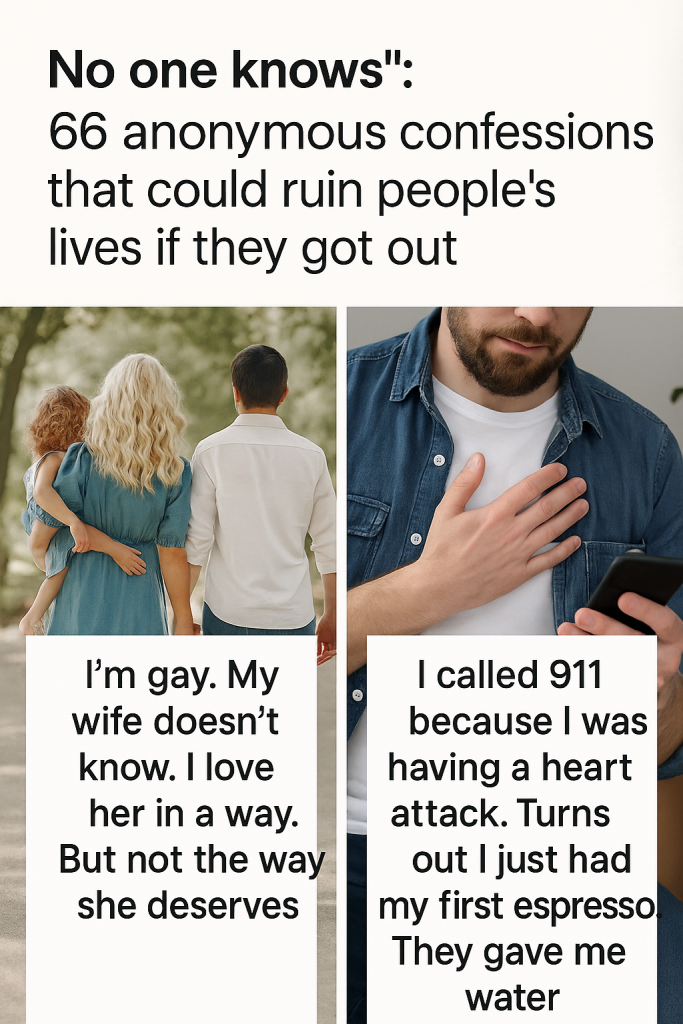In an age where privacy feels increasingly elusive, a recently surfaced collection of 66 anonymous confessions has captured widespread attention—and for good reason. These deeply personal admissions, shared online without identifiers, reveal secrets so sensitive that their exposure could irreparably damage relationships, reputations, and even careers.
The confessions cover a wide spectrum of human experience, from hidden identities and suppressed desires to long-buried mistakes and ethical dilemmas. Among the most discussed is a confession from someone describing a closeted aspect of their identity: “I’m gay. My wife doesn’t know. I love her in a way. But not the way she thinks.” This particular admission—and others like it—have sparked extensive conversations about the emotional complexities of living with a secret that challenges societal expectations and personal commitments.
What makes this collection especially compelling is the candor and vulnerability expressed by those who shared these stories. The anonymous nature allows for unfiltered honesty, providing a rare glimpse into the private struggles many endure silently. Some confessions touch on controversial issues such as infidelity, financial deceit, hidden addictions, and moral conflicts, underscoring how fragile trust and perception can be.
The emotional weight carried by these revelations invites empathy, but also raises important questions about privacy and the consequences of exposure. In many cases, the individuals confessing revealed fears of rejection, shame, or social ostracism should their secrets be uncovered. This fear of public disclosure highlights the delicate balance between transparency and protection that defines much of modern human interaction online.
Experts in psychology and social behavior note that anonymous confession platforms have grown in popularity as people seek safe spaces to unburden themselves. These forums can serve as therapeutic outlets, helping people process guilt, confusion, or pain. However, the very anonymity that offers comfort also creates potential risks. When such confessions gain viral traction, as has happened with these 66 stories, the chance of unintended consequences multiplies.
Social media users have widely shared and debated the compilation, many expressing shock, sympathy, or self-reflection. Some have related to the confessions on a personal level, while others warn about the dangers of turning sensitive admissions into public spectacle. The stories serve as a potent reminder that everyone carries unseen chapters, often more complicated than outward appearances suggest.
As this collection continues to circulate, it underscores an important cultural dialogue about honesty, secrecy, and trust in the digital age. It also challenges readers to consider how they would cope with such revelations—whether as the bearer of a secret or the one discovering it unexpectedly.
Ultimately, these 66 anonymous confessions illuminate the hidden truths many keep tucked away. They compel society to rethink assumptions about identity, relationships, and the boundaries of privacy in an increasingly connected world.



